Amidst bleak future, Safai Karamcharis of Godhra have little interest in upcoming state elections
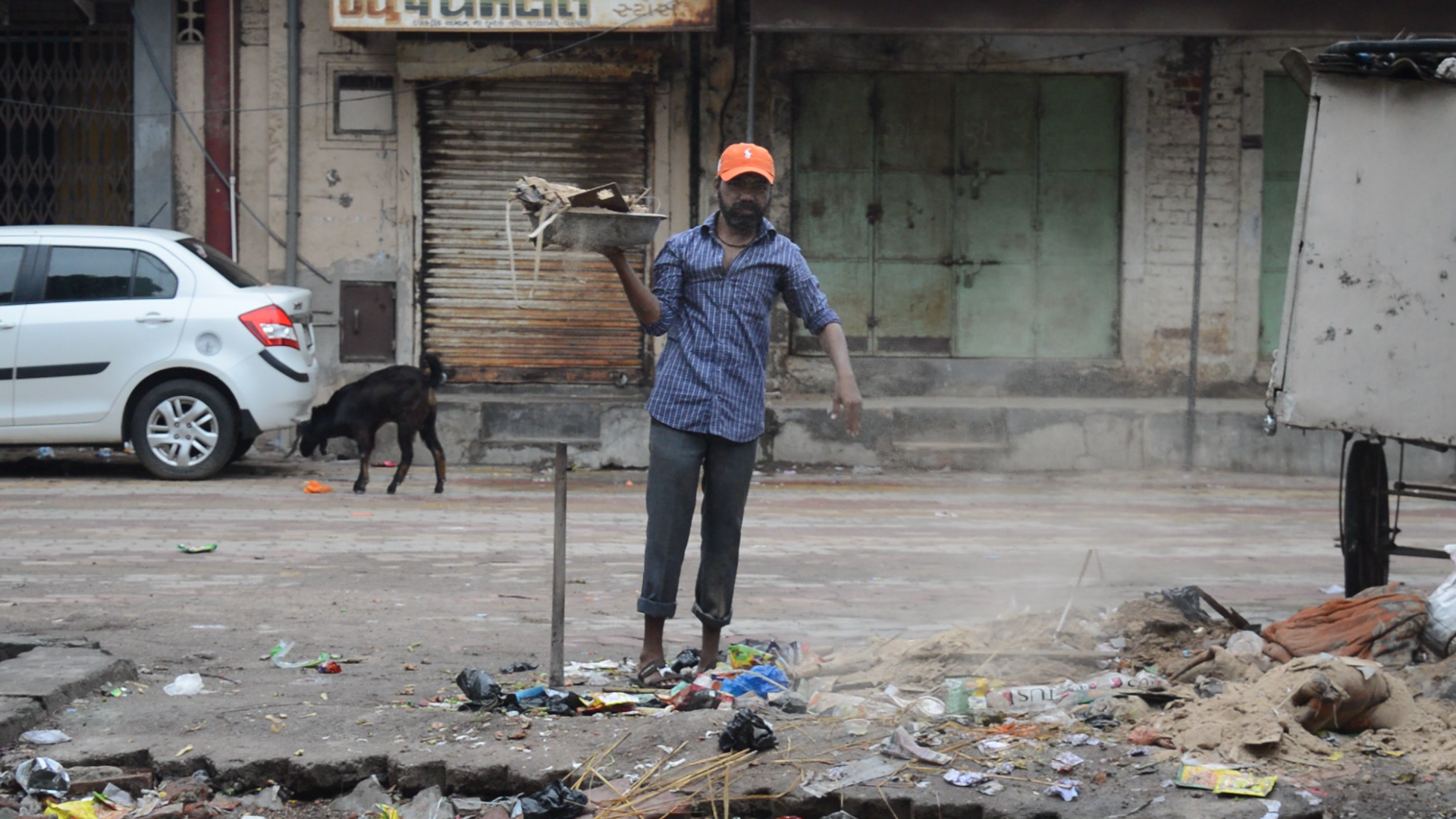
By Amit Kumar, TwoCircles.net
Photos by Pratik Parmar
Last year, the nation woke up to atrocities faced by Dalits in our Prime Minister’s Home state of Gujarat, when four Dalits were beaten up and humiliated in public by right-wing goons in Una. Since then, the plight of Dalits in Gujarat might have gotten more attention, but it is also evident that not much has changed for the community on the ground. Only a year after the Una incident, two Dalits were beaten and assaulted again near Anand, Gujarat, about 350 km from Una, on Independence day for skinning a dead cow.
[caption id="attachment_415843" align="aligncenter" width="1920"]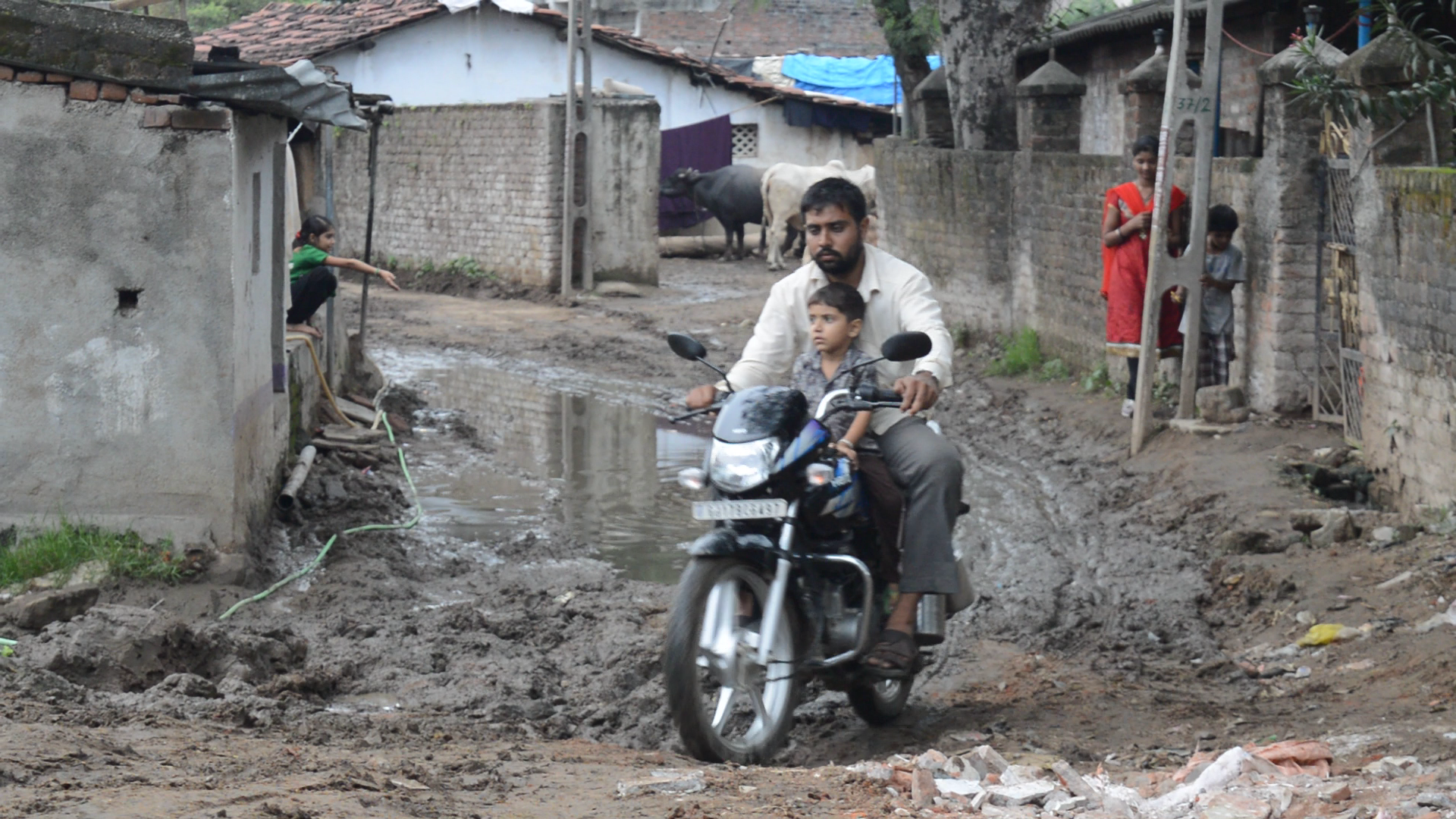 The condition of the roads in the colonies of Valmiki community is deplorable especially in monsoons[/caption]
The condition of the roads in the colonies of Valmiki community is deplorable especially in monsoons[/caption]
To counter Dalits of Godhra have been organizing, protesting and asserting strongly to ensure that no one dares to raise a hand on one of their community members under any pretext again. But despite assertion, lies a cruel truth: despite being residents of this city, there has been almost no change in their social and economic status. In fact, when asked about their expectations from this year’s upcoming state elections, their answers mostly veered towards apathy: nothing much had changed in all these years, so what would be different this time?
[caption id="attachment_415838" align="aligncenter" width="1920"]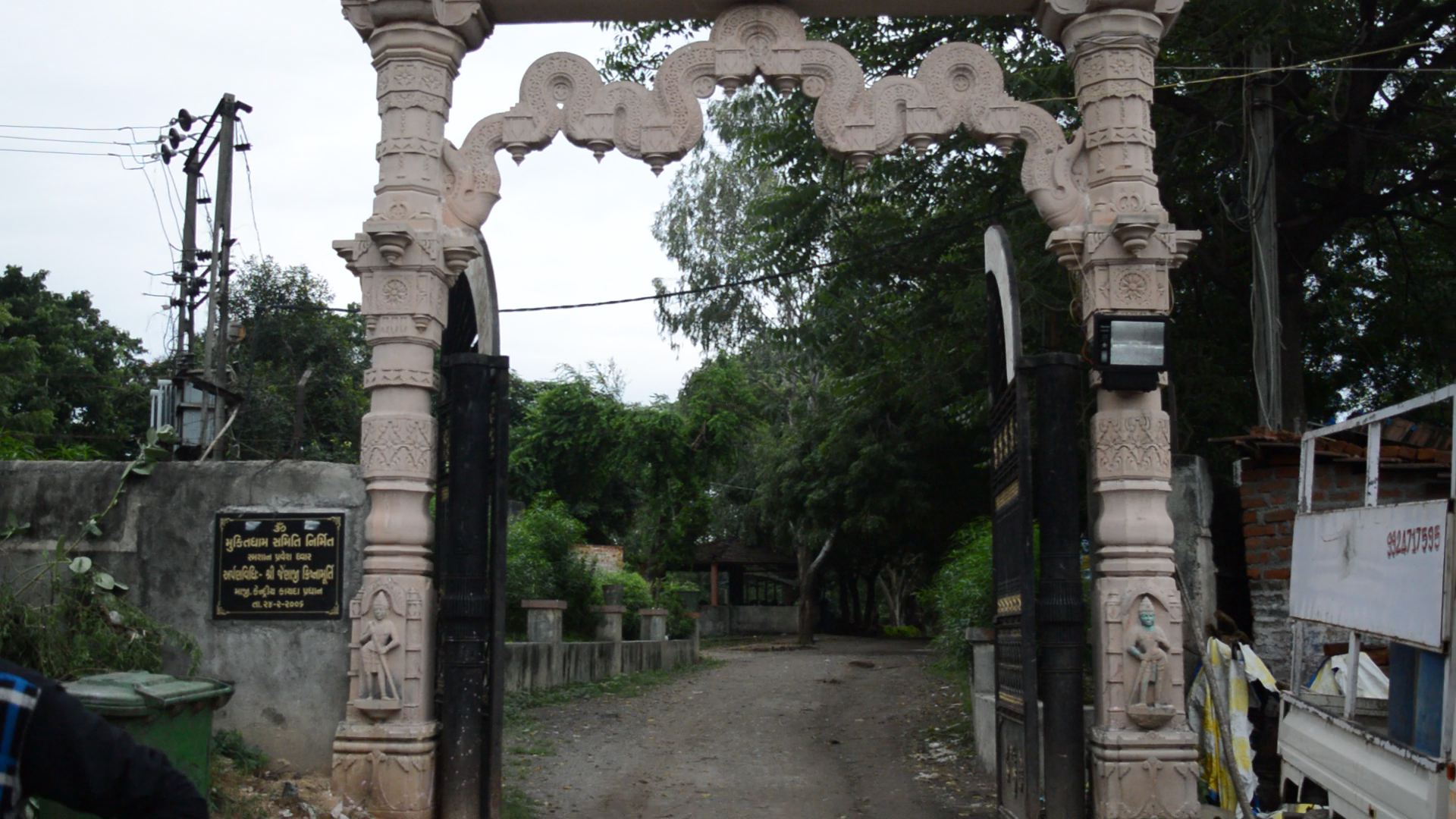 The Valmiki colony is located next to a crematorium[/caption]
The Valmiki colony is located next to a crematorium[/caption]
A majority of the Dalits in Godhra City belong to the Valmiki sect, and their main occupation is to work as Safai Karamcharis (Manual Scavengers). It is a profession that residents say go back to as long as they can remember: during our visits to the Dalit localities, we found people who have been doing this job for more than three generations in this city alone. Other Dalit castes include Bunkar (weaver) and Chamar (Tanners).
We are met by an enthusiastic corporator who has been representing Mama Phadke area, a Dalit locality, for the past 15 years. A member of the BJP and the Valmiki community, he is keen to show the progress that his community has made in the past few decades. Pointing towards double-storeyed buildings in Mama Phadke Nagar, he says, “You see these? All belong to the Valmiki community. We have progressed well, and I can say proudly that an incident like Una, or the recent one in Anand will never happen here.”
[caption id="attachment_415839" align="aligncenter" width="1920"]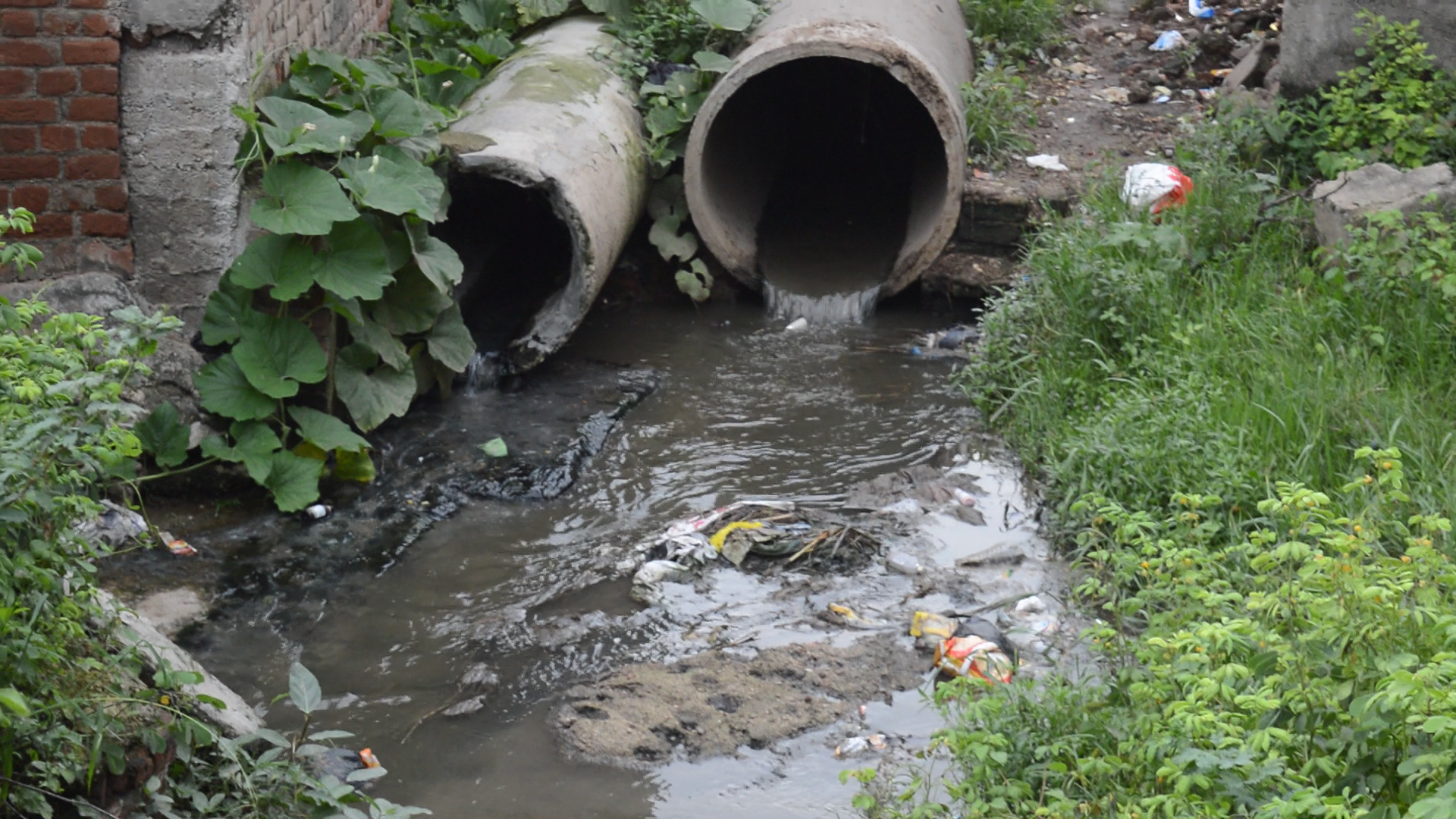 Open Sewers outside the Valmiki colony[/caption]
Open Sewers outside the Valmiki colony[/caption]
The claim that all the homes belonged to Safai Karamcharis might be an exaggeration as quite a few of these families had moved on to other professions, as we found out later. But even those thoughts soon took a backseat when we entered a locality called Bhutrijhapa, near the crematorium.
A row of half-built homes lined with asbestos roofs with no drainage facilities and almost zero street lights, along with broken roads, greeted us as we entered the Safai Karamchari colony.
[caption id="attachment_415842" align="aligncenter" width="1920"] Safai Karmacharis cleaning the streets of Godhra. Less than 300 Safai Karmacharis are tasked with cleaning a city of over 1.4 lakh people[/caption]
Safai Karmacharis cleaning the streets of Godhra. Less than 300 Safai Karmacharis are tasked with cleaning a city of over 1.4 lakh people[/caption]
Most of these homes belong to Safai Karmacharis who either work on daily wages, or what is called a “fixed” income. As Hardik Solanki, a resident, explained, “There are three levels of jobs in the Safai Karmachari department. The top most are about 25 people who have an income of between Rs. 20,000-Rs 25,000 and are entitled to all the facilities accrued to a state employee. Then, there are people who work for a fixed income of about Rs. 7,100 per month for a period of five years. They are the next in line for a permanent job. Then, there are workers who earn Rs. 200 per day, their monthly income depending on how many days they work in a month. They get no facilities from the state. Even the broom they use must be bought from their own income.” Most of the residents of this colony worked either on the daily wage or fixed income. According to Sanjeev Solanki, another Safai Karmachari, there is no defined structure as to when a person is eligible for promotion. “I have been working on the daily wage system for over 15 years now and I am yet to be even promoted to a fixed salary,” he added. This haphazard system has a detrimental impact on the lives of their families, as without a decent income their economic condition suffers substantially. “Before every election, we are promised that our jobs will be made permanent, and then nothing happens. Let alone permanent jobs, they (the administration) doesn’t even give us proper boots and gloves. Then what do we expect out of them in these elections?” he asks.
[caption id="attachment_415840" align="aligncenter" width="1920"]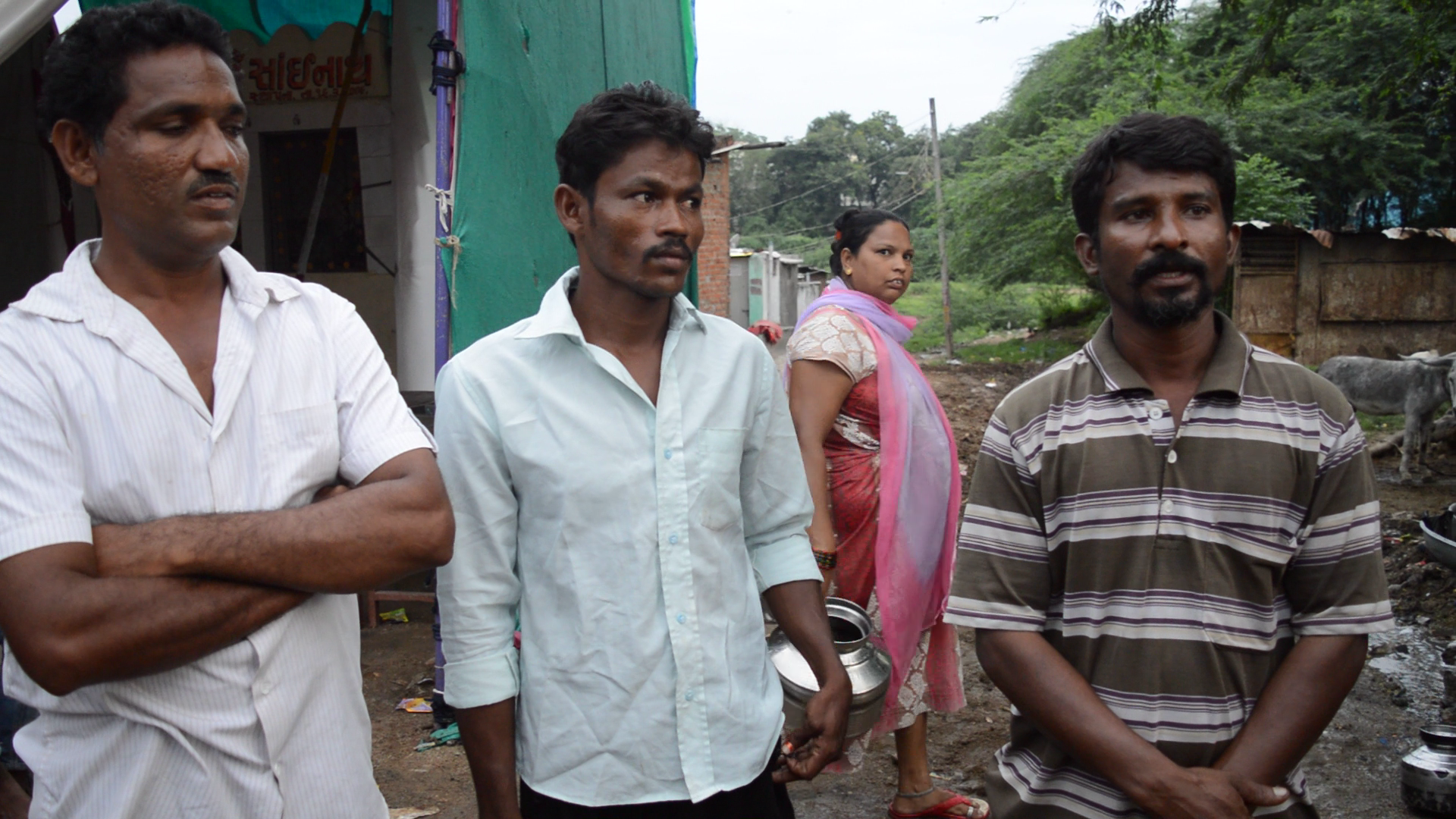 Safai Karmacharis say that have pending salaries of over three months[/caption]
Safai Karmacharis say that have pending salaries of over three months[/caption]
As if all these problems were not enough, the Safai Karamcharis have also been duped of their hard-earned income, with some of them alleging that they had not been paid for three months. “There are less than 300 of us in the city, and yet the corporation says they have no money to pay us. Sometimes, the money is a week late, sometimes it is two weeks late...as of now, some of us have three months’ income pending. How are we supposed to run our families?” asked one other Safai Karamchari.
The condition of the colony also leaves a lot to be desired. There are almost no street lights, but much worse for this rainy season, the streets have no drainage. Earlier this week, Godhra received ample rainfall and the entire street had turned into an open sewer. The residents themselves dug a small outlet underneath a house to release the water. “All this while, not a single person from the administration offered any help...we are made to pay every month for cleanliness, yet we never see anyone clean this place. The only time there is an attempt to clean the outer street is when a famous person dies,” adds Hardik.
When asked what he hoped from the upcoming elections, his answer was blunt. “Let us get our money first...elections can wait,” he said.
[caption id="attachment_415841" align="aligncenter" width="1920"] The Safai Karmacharis are made to work without any safety gear[/caption]
The Safai Karmacharis are made to work without any safety gear[/caption]
The biggest loss as a result of these policies has been for the youth of this colony. Unable to pursue higher studies due to income issues, they have resigned either to work as daily wage labourers or worse, Safai Karmacharis. Rajkumar Solanki, a youth, left studies after Class 11 because of the pressure to work. He now works as casual labour as and when he gets a job. A first-time voter, he says he does not have much hope from his leaders. “I have grown up here, and have seen many leaders from our communities who promise the moon but are faithful only to their leaders, never to us. I will, of course, vote, but I am not sure if it will make any difference to our lives. If voting changed lives, it would have done so to us a long time ago,” he adds.
